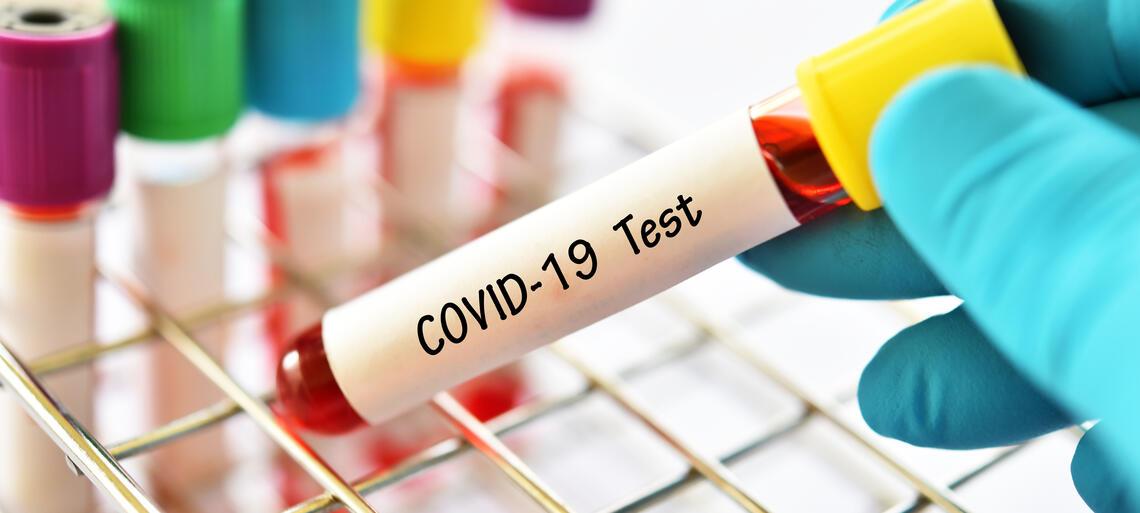
READING SEROLOGICAL TEST RESULTS
by Prof. Pier Luigi Meroni, Director of Immunorheumatology Research Laboratory
Article published in cooperation with Clorofilla-Editoria Scientifica
WHAT ARE THE ANTIBODIES?
Antibodies, or immunoglobulins (Ig), are proteins produced by some white blood cells, named lymphocytes B, that are involved in the immune response against whatever substance (for example, an allergen) or micro-organism (virus, bacteria, etc.) that they recognize as dangerous.
After coming in contact with specific “foreign” molecules in the body, called antigens, antibodies can, for example, interfere with the capability of pathogenic micro-organisms of interacting with body cells, or stimulate their elimination by specific immune cells.
HOW MANY ANTIBODY TYPES EXIST?
There are five types of antibodies that can be classified according to their functions.
- Immunoglobulins A (IgA): They account for approximately 15% of total antibodies. They specialise in defence against local infections and mucosal aggressions. (respiratory, intestinal, etc.). Mainly in mucus and body external secretions (tears, saliva, genitourinary secretions, breast milk and colostrum, etc.).
- Immunoglobulins D (IgD): Their function has not yet been fully clarified. They are present on the membrane of lymphocytes B, probably playing the role of receptors.
- Immunoglobulins E (IgE): They are involved in allergic immune reactions and in parasite infestations.
- Immunoglobulins M (IgM): They are involved in the first immune response against a new infection or a foreign antigen.
- Immunoglobulins G (IgG): They account for approximately 70-80% of total immunoglobulins. They can be found in all body fluids and are essential to fight bacterial and viral infections. They are the antibody class that the mother transmits to the foetus through the placenta.
WHICH IS THE DIFFERENCE BETWEEN IgG AND IgM?
Antibodies IgM and IgG are the most important defence weapons of the body against infectious diseases; they behave almost like relay racers:
- IgM are the first antibodies that are produced following contact with a foreign agent. Traces can be found in blood after 5-10 days. Their production rapidly increases in the next weeks, then decreases and stops when IgG replace them (IgM can be found in blood even after 3 to 4 months);
- Generally, IgG production increases after a few weeks from infection and gradually decreases until stabilising. IgG help developing a secondary immune response that is triggered in case of subsequent exposures to the same antigen. They function as the “memory” of the immune system that, in this manner, remembers the micro-organisms with which it has already come in contact and is ready to take action in case of further infection.
Indeed, this is the mechanism upon which vaccine immunity is based. You create the immune memory against an infecting agent by causing the immune system to react to the injection of a dead or alive-yet-attenuated (and consequently harmless) micro-organism or of a molecule reproducing a part of the micro-organism and stimulating a reaction also against the original infectious agent.
In this manner, if you come in contact with the micro-organism against which you were vaccinated, specific antibodies (IgG) already present in your body will provide a fast and effective immune response.
WHAT ARE SEROLOGICAL TESTS USED FOR?
These tests are used to detect the presence or the amount of some immunoglobulins (specific for a certain antigen) in serum. Serum is the liquid that is obtained from blood after removing corpuscles (red blood cells, white blood cells and platelets) and some proteins responsible for blood coagulation (for example, fibrinogen and clotting factors).
Generally, IgG and IgM are measured to obtain a picture of your immune situation and assess if you came in contact with a certain micro-organism or if the vaccination you took induced the production of specific antibodies.
The test can be quality-based or quantity-based:
- The quantitative serological test is conducted on a blood sample taken from a vein and measures the total concentration of IgG, IgM and IgA;
- The qualitative serological test detects only the presence or absence of IgG and IgM antibodies, without indicating the amount of antibodies that are present.
WHAT DOES THE SEROLOGICAL TEST RESULT INDICATE?
The results of a serological test performed to evaluate possible exposure to a pathogenic micro-organism can be as follows:
- Negative IgM and IgG: No infection occurred or exposure to the pathogen is too recent and a detectable immune reaction has not yet been developed or the level of the antibodies produced is too low to be detected by the test;
- Positive IgM only: Exposure to the antigen is very recent.
- Positive IgM and IgG: The infection is in progress and has been contracted recently;
- Positive IgG only: The infection occurred, but not recently. It is not always possible to establish whether the tested subject is protected against a subsequent infection and, if so, for how long.
Depending on results and the antigen investigated, the physician might need to prescribe other tests to formulate an accurate diagnosis.
